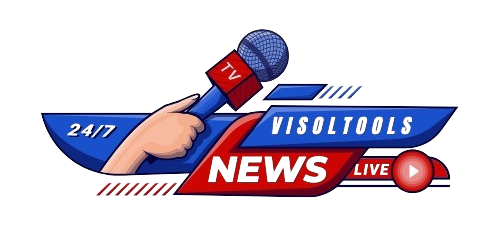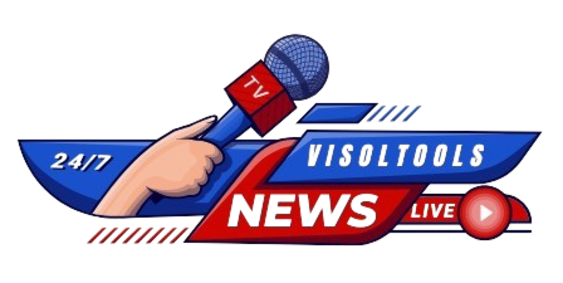VA Loans: A Journalist’s Guide to Military Homeownership
For millions of service members, veterans, and eligible surviving spouses, the dream of homeownership becomes a tangible reality thanks to VA loans. These unique mortgage options, backed by the U.S. Department of Veterans Affairs, offer unparalleled benefits, setting them apart from conventional financing. As a journalist who has covered housing and veterans’ affairs for over a decade, I’ve seen firsthand the profound impact these loans have on the lives of those who have served our nation.
Key Summary
- VA loans are government-backed mortgages for eligible service members, veterans, and spouses.
- They typically require no down payment, a significant advantage over other loan types.
- Interest rates are often competitive, and private mortgage insurance (PMI) is not required.
- Eligibility depends on service history, and the application process involves specific steps.
- Understanding common misconceptions is crucial for maximizing benefits.
Why VA Loans Matter: A Veteran’s Path to Homeownership
In my 12 years covering this beat, I’ve found that the VA loan program stands as one of the most vital benefits offered to our military community. It’s more than just a financial product; it’s a recognition of sacrifice and a critical tool for building generational wealth. Without the barrier of a hefty down payment, many service members who might otherwise be priced out of the housing market can achieve stability and establish roots. This program not only facilitates homeownership but also strengthens local economies by empowering a significant segment of the population to invest in their communities. The program’s resilience, even through economic downturns, underscores its importance as a cornerstone of veteran support.
The Evolution and Core Benefits of VA Loans
The VA loan program originated with the Servicemen’s Readjustment Act of 1944, commonly known as the G.I. Bill, designed to help returning World War II veterans reintegrate into civilian life. Its initial purpose was to ease the transition, and over the decades, it has evolved to meet the changing needs of the modern military family. Today, the core benefits remain strikingly advantageous:
- No Down Payment: This is arguably the most significant benefit. Unlike conventional loans that often require 5% to 20% down, VA loans typically allow eligible borrowers to finance 100% of the home’s value. This eliminates a major hurdle for many.
- No Private Mortgage Insurance (PMI): Lenders typically require PMI on conventional loans when a borrower puts less than 20% down. VA loans are exempt from this requirement, leading to substantial monthly savings for the homeowner.
- Competitive Interest Rates: VA loans often boast lower interest rates compared to conventional loans, thanks to the government backing, which reduces the risk for lenders.
- Limited Closing Costs: The VA limits what lenders can charge veterans in closing costs, and sellers are permitted to pay certain costs on behalf of the buyer, further reducing out-of-pocket expenses.
- No Prepayment Penalties: Borrowers can pay off their loan early without incurring any extra fees.
- Assumable Loans: Under certain conditions, a VA loan can be assumed by another qualified buyer, even non-veterans, which can be an attractive feature when selling.
Eligibility Unpacked: Who Qualifies for VA Loans?
While the benefits are broad, eligibility for VA loans is specific and tied directly to service history. Generally, veterans, active-duty service members, and certain surviving spouses may qualify.
“The VA determines eligibility for a home loan by reviewing your service record. Generally, you’re eligible if you served for a certain period, depending on when you served and whether you were active duty or in the National Guard or Reserves.”
Key factors include:
- Service Duration: Minimum active-duty service varies by era (e.g., 90 consecutive days during wartime, 181 days during peacetime).
- National Guard/Reserve: Specific requirements apply for members of the National Guard or Reserves.
- Discharge: Honorable discharge is typically required.
- Surviving Spouses: Spouses of veterans who died in service or from service-connected disabilities, or who were prisoners of war (POWs) or missing in action (MIAs), may also be eligible.
Understanding Funding Fees and Closing Costs
While there’s no down payment or PMI, VA loans do have a “funding fee.” This one-time fee, typically rolled into the loan amount, helps offset the cost to taxpayers and ensures the program continues. The amount varies based on factors like down payment size (if any), type of service, and whether it’s a first-time use or subsequent use of the benefit. For veterans receiving VA disability compensation, the funding fee is typically waived. Closing costs, while limited by the VA, still exist and can include appraisal fees, title insurance, and recording fees. Careful budgeting and negotiation with the seller can help manage these expenses.
Expert Perspectives on Navigating the VA Loan Process
Reporting from the heart of the community, I’ve seen firsthand how crucial it is for veterans to partner with lenders and real estate agents who truly understand the nuances of the VA loan program. Many conventional loan officers may not be familiar with its unique requirements, potentially leading to delays or misunderstandings.
“One common pitfall I observe is veterans not fully leveraging their Certificate of Eligibility (COE) early in the process,” notes Sarah Jenkins, a seasoned loan officer specializing in VA loans. “The COE is your golden ticket; obtaining it upfront streamlines everything. It confirms your eligibility and entitlement.”
Another key insight is the importance of the VA appraisal process. Unlike a standard appraisal, a VA appraisal includes a Minimum Property Requirements (MPR) inspection, ensuring the home is safe, structurally sound, and sanitary. While this can sometimes be perceived as an added hurdle, it ultimately protects the veteran, ensuring they are buying a home that meets essential habitability standards.
Common Misconceptions About VA Loans Debunked
Despite their clear advantages, several myths surrounding VA loans persist, often deterring eligible individuals from exploring this valuable benefit. Let’s set the record straight:
- Myth 1: VA loans are only for first-time homebuyers.
- Reality: Veterans can use their VA loan benefit multiple times throughout their lives, provided they have remaining entitlement or if a previous loan has been paid off and entitlement restored.
- Myth 2: VA loans are harder to close or less attractive to sellers.
- Reality: While there are specific VA requirements, an experienced lender can ensure a smooth process. In a competitive market, a VA loan with its strong backing can be just as appealing to sellers as a conventional offer, especially with a motivated and well-prepared buyer.
- Myth 3: You need perfect credit to qualify.
- Reality: While credit score is a factor, the VA itself doesn’t set a minimum credit score. Lenders do, but their requirements can be more flexible than for conventional loans, as the VA guarantees a portion of the loan. Other financial factors are often considered.
- Myth 4: VA loans are only for single-family homes.
- Reality: VA loans can be used to purchase a variety of property types, including condominiums, multi-unit properties (up to four units, if the veteran occupies one), and even new construction homes.
Frequently Asked Questions
Q: What is a VA loan funding fee?
A: The VA loan funding fee is a one-time charge paid by the borrower that helps defray the cost of the loan program to taxpayers and reduces the risk to the VA. It varies based on factors like down payment and previous use of the benefit.
Q: Can I get a VA loan with bad credit?
A: While the VA doesn’t set a minimum credit score, individual lenders do. However, VA loan lenders may be more flexible than conventional lenders, looking at the borrower’s overall financial picture.
Q: Do VA loans require private mortgage insurance (PMI)?
A: No, one of the key benefits of a VA loan is that it does not require private mortgage insurance (PMI), even with no down payment, saving borrowers significant money each month.
Q: Can I use my VA loan benefit more than once?
A: Yes, eligible veterans can use their VA loan benefit multiple times. This is possible if a previous VA loan has been paid off and the entitlement restored, or if the veteran has remaining “bonus” entitlement.
Q: What is a VA Certificate of Eligibility (COE)?
A: A Certificate of Eligibility (COE) is an official document from the VA that proves you meet the service requirements to apply for a VA home loan. It’s the first step in the loan application process.
Conclusion
The VA loan program stands as a powerful testament to the nation’s commitment to its service members and veterans. It’s a comprehensive benefit designed to foster homeownership, financial stability, and a smoother transition to civilian life. As a journalist, I continue to advocate for greater awareness and understanding of these loans, ensuring that every eligible individual can unlock the potential they hold for building a secure future. For those who have served, understanding and utilizing this benefit is not just a smart financial move; it’s an earned right.





